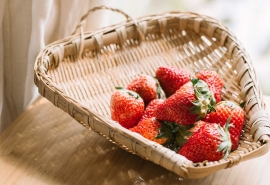
现在时和将来时的造句
将来时标记向认识情态功能的衍生
(一般将来时)我们学校这个周末有一场电影。
将来时的概念结构及其词汇来源
在英语中,将来时常用助动词来表现。
摘要宜春话有一个将来时态助词“格” 。
(一般将来时)下个月伦敦将有成千上万的球迷。
我怕天黑我会迷路。 (从句动作在主句动作之后,从句用过去将来时。 )
(一般将来时)今晚在阿尔伯特会堂举行音乐会,将要进行实况转播。
现在进行时态还可以用来表示将来动作(计划中的动作) ,句中通常有将来时间。
一般将来时造句100个?
1、我明天要去上学。I will go yo school tomorrow。 2、明天谁将要来那里? Who will e here tomorrow? 3、下周会发生什么? What will happen in the following week? 4、下次你将在哪里打篮球?Where will you play basketball next time? 5、这封信明天将寄出去。The letter will be sent tomorrow。 6、这天下午我们打算开班会。We are going to have a class meeting this afternoon。 7、我将回答那个问题。The question will be answered by me。 8、他不会那样做的。He won't do that。 9、王教授稍后将会给我们展示。Professor Wang will give us a presentation later。 10、我将过去帮你。I'm going to help you。 11、明天早上我要去买些东西。I am going to buy something tomorrow morning。 12、Look at the black clouds。 It's going to rain。看那些乌云,快要下雨了。 13、我将去买一本书。I'm going to bvBXKaRnuy a book。 14、九月份我将会返校。 I will e back to school in September。 15、你会明白这个问题的。Yo搜趣网u will understand the question。 16、明天我要去北京。I will go to BeiJing tomorrow。 17、她打算这天下午去看望王先生。She is going to see Mr。 Wang this afternoon。 18、你明天要干什么? What will you do tomorrow? 19、Tom明晚点到我家来了。 Tom will e to my home at PM。 20、如果我们违反规定,我们将受到惩罚。We shall be punished if we break the rule。 21、下个月我会看你的。 I will visit you next month。
一般将来时的句子(二): 1、Tom will see you on his way out。 汤姆会在他出去的路上看到你 2、I can't think of a day when I didn't know her。 我想不起是否有过我不认识她的那一天 3、I will be here waiting for you。 我会在这儿等着你 4、The rain will stop soon。 雨很快就会停了 5、Jokes will make you laugh。 笑话会让你大笑 6、Will everybody be like this? 每个人都会是这样的吗? 7、She will tell me when she is ready。她会在她准备好了以后就告诉我 8、When will you finish writing the answer? 你什么时候能写完答案? 9、The oranges will rot if you don't eat them。 如果你不吃掉它们,橘子烂掉的 10、Where will you vBXKaRnbe going next? 你接下来要去哪儿? 11、What will you do on Sunday? 你会在星期天干什么? 12、She said that she will never give up。 她说她永远都不会放下 13、I will go to the movies。 我要去电影院 14、Sentences will bee longer。 句子会变得更长 15、You will never know what will happen next。你永远都不会明白接下来要发生什么 16、Many people will help her。 很多人会帮忙她 17、So,when will you go to university? 所以,你什么时候去上大学? 搜趣网 18、Do you think she will be watching anime? 你想她会不会再看动漫? 19、When will I pick you up? 我什么时候来接你? 20、He said that he will go when he is ready。 他说准备好了以后就去
一般将来时的句子(三): 1、You will do some washing。(你将做清洁) 2、She is going to visit the place she dreams to go in childhood。(她将去他儿童时候梦想去的地方) 3、I'm going to visit my mother school。(我将拜访母校) 4、I'm to go to study English。(我要去学英语) 5、He's going to be a teacher。(他即将成为一个老师) 6、She will do a part-time job。(她会做一份兼职) 7、I'm going to buy a flower to send to my GF。(我要去买花送给女友) 8、She is to go to see his two-year old consin。(她要去看她两岁大的侄子) 9、He is to go to park to have a rest。(他将去公园休息一下) 10、You will choose a better anwser。(你将选一个好的答案)
一般现在时,一般过去时,一般将来时。怎么造句?造两句。
如下:
一般现在时
i sleep every day.
When he comes,he has to report to the teacher by himself.
一般过去时
I did my homework yesterday.
When he came,she had finished doing it.
一般将来时
I will go to school tomorrow
When he comes,he will find it.
一般现在时,是一种英语语法形式。表示通常性、规律性、习惯性、真理性(即事实)的动作或状态,或者动作有时间规律发生的事件的一种时间状态。在英语语法中,“时”指动作发生的时间,“态”指动作的样子和状态。
一般现在时(simple present)拆开来讲就是:
时间:指动作发生在“现在”的时间段内。
状态:一般现在时最容易迷惑的一个问题,就是拿不准什么叫“经常发生的动作或存在的状态”。
这个问题要分两层来讲:
1、规律性:“经常发生的动作”,比如每天起床、吃饭、上学,一个星期去几次超市或新华书店等。
经常性:在生活中,有的事情是有规律的,有的是偶尔做几次。这些都算经常发生的事件。
习惯性:这个动作经常发生,是一般的情况而不是具体的某一次。
真理性:有些动作或状态是永恒的,比如长江向东流、地球绕着太阳转,比如谚语中举的事例、文学作品//www.souquanme.com中描绘的事例,像“好马不吃回头草”等等。
2、事物存在的状态。
用一般现在时、现在进行时、过去时、将来时、被动语态造句子
不要简单句、、句子最好长一点、、两个就行、、谢谢了、、/
is
/
are
+
being
+
及物动词的过去分词
Uncle
Wang
is
mending
my
bike
now.→
My
bike
is
being
repaired
by
Tom
now.
They
are
planting
trees
over
there.
→
Trees
are
being
planted
over
there
by
them.
个人认为就是正在进行中的事情主语为事情的承受者
一般过去时被动语态was
/
were
+
及物动词的过去分词
A
new
shop
was
built
last
year.
Dinosaur
eggs
were
laid
long
long
ago.
发生在过去
一般现在时被动语态is
/
am
/
are
+
及物动词的过去分词
Our
classroom
is
cleaned
everyday.
I
am
asked
to
study
hard.
Knives
are
used
for
cutting
things.
现在发生的最平常的事情
希望能帮上忙
用5个动词在一般现在时、一般过去时、一般将来时、现在进行时各造一句话.
一般过去时: I went to school.
一般将来时: I will go to school.
现在进行时: I am going to schook.





